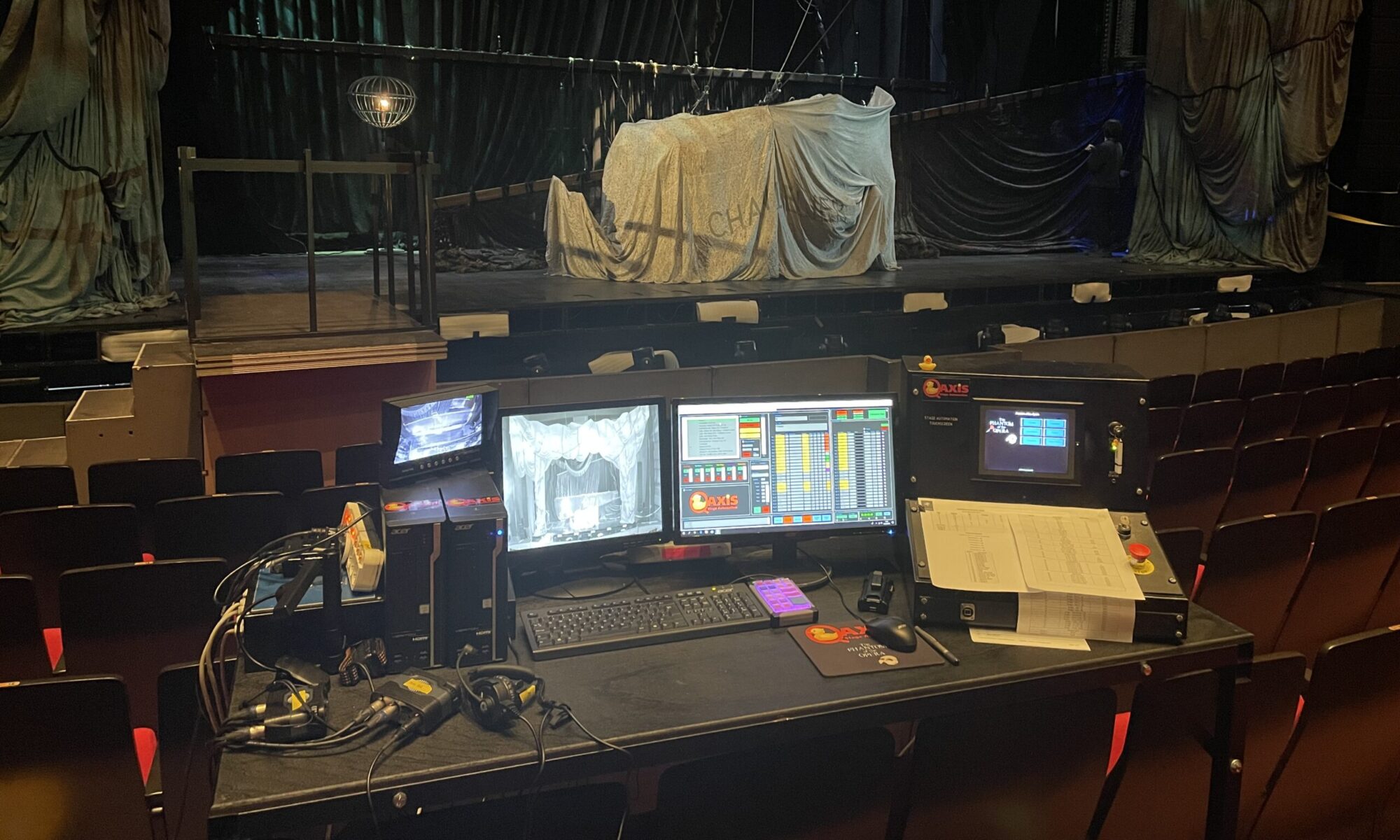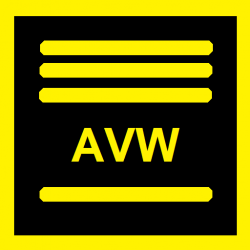Frequently Asked Questions about AVW and stage automation.
Why do stage automation systems trip out RCDs?
AN RCD (Residual Current Device) is a life saving device designed to prevent a fatal electric shock if you touch something live such as a bare mains wire. The electric current will pass through you instead of its normal path and this is detected very quickly by the RCD and power is removed. You will still get a shock and it will still hurt but it will not be fatal. It also provides some protection against electrical fires.
All inverters have a small amount of current leakage to Earth via their storage capacitors and this does not usually cause an issue. However, to comply with EMC regulations to prevent electromagnetic noise getting onto the mains supply and affecting other equipment particularly sound and AV an EMC filter is fitted to the mains input of an inverter and this can cause nuisance tripping of an RCD Earth Leakage breaker. The trip current of an RCD is often set at 30mA and the leakage current of an inverter starts at around 20mA, but is at its most leaky when first powered up. Therefore this can be a problem for stage automation control systems.
There are three different types of RCD:
Type A – Detects AC and pulsating DC Fault currents, these can be used with single phase input inverters.
Type B – Detects AC, pulsating DC and smooth DC, these MUST be used with three phase input drives.
Type C – Detects AC fault currents only. This type should never be used with inverter drives.
Some RCDs can have a higher fault threshold of 100mA, this can be used in commercial property however any outlet sockets on the same distribution would require the normal 30mA RCD.
Some venues will not allow their RCDs to have a higher trip threshold or be bypassed in which case if nuisance RCD tripping is still an issue an isolating transformer could be used.
An RCD is not mandatory; BS7671:2018 provides guidance with regulation 419.2 regarding this subject and refers to BS EN 62477-1 (Safety requirements for power electronic converter systems and equipment Part 1: General).
More useful information can be found here.
Can I run stage automation equipment using DMX ?
NO! Don’t do it!
DMX does not have any error checking method and wrong codes can be sent out too easily from a lighting desk. It’s fine to use DMX for dimming, moving lights and triggering non-dangerous events where there is no possibility of hurting someone but it should never be used where there is even the slightest possibility of injury.
See https://en.wikipedia.org/wiki/DMX512
DMX512 does not include automatic error checking and correction, and so is not an appropriate control for hazardous applications, such as pyrotechnics or movement of theatrical rigging. False triggering may be caused by electromagnetic interference, static electricity discharges, improper cable termination, excessively long cables, or poor quality cables.
We do however interface our automation systems to DMX controlled lighting and AV systems to provide position information so that the lighting and AV can accurately track the position of the automated scenery.
Does AVW hire out stage automation equipment?
No, at least not directly. AVW Controls Ltd is a stage automation manufacturer as such we manufacture control systems for third parties. However, some of our customers do hire out equipment that we originally designed and manufactured. We can put you in touch with them if required. You may also find that buying from us is actually cheaper than hiring from some of our competitors, so always worth asking!
Can I use my own motors?
Yes! In fact, this is the way we work most often; with our customers providing the mechanical structure and we supply the automation to make it all work as intended.
How does stage automation work?
Please refer to our Books page where you will find a link to our book that will reveal all!
Do you offer training on your systems?
Yes! We can offer training on our systems and also regularly give talks to technical theatre students about stage automation more generally.
How much does a stage automation system cost?
The answer to this depends on a lot of things. The number of motors to be controlled, speeds and weights of pieces to be moved, safety components etc. As such each control system has to be individually priced according to your specification. We will advise what is necessary and what might be considered a ‘nice to have’ so that you can tailor your automation system specifically to your requirements. In addition our invoices are factored by Lloyds Bank Commercial Finance so if your company has a good credit rating we can offer generous credit terms.
How many projects have AVW worked on?
AVW have been trading for over 25 years, we lost count a long time ago on the number of projects that we have worked on. Our projects page shows some of the projects that we have worked on but by no means all. In addition all the employees of AVW have worked for other stage automation companies prior to working for AVW so we have a collective 90 years in the business!
Do you export your control systems?
Yes! In fact most of our control systems are exported by our lovely UK based customers. However, we can export directly for an overseas customer if they have a good credit rating with our factoring company Lloyds Bank Commercial Finance or pay by pro-forma invoice.
Do your control systems conform to EU/UK Directives?
Yes! All our control systems conform with the following relevant EU/UK Directives:
Machinery 2009/127/EC & UK Equivalent
By observance of the following standards; BS EN12100, BS EN13857, BS EN13850, BS EN13849, BS EN1037, BS EN14119, BS EN60073, BS EN60204.
Low Voltage Equipment (LVD) 2014/35/EU & UK Equivalent
By observance of the following standards; BS EN60204, BS EN60947, BS EN60335-1 + A11:2014, BS EN60335-2-41:2003 + A1: 2004 + A2: 2010
Electromagnetic Compatibility (EMC) 2014/30/EU & UK Equivalent
By observance of the following standards; BS EN55014-1:2006 + A1:2009 + A2:2011, BS EN61000-3-2:2006 + A1:2009 + A2:2009, EN61000-3-3:2008, BS EN55014-2:1997 + A1:2001 + A2:2008
In addition our control systems are designed, manufactured and/or installed, where relevant, in accordance with BS EN17206, BS7671, BS7905, BS7906, BS5839, BS EN 50525, BS EN50525-2-1 and the recommendations given in the Association of British Theatre Technicians Technical Standards for Places of Entertainment.
We then issue a Declaration of Conformity certificate signed by a Chartered Engineer. This declaration, along with the control system schematics, operation and maintenance manual and all relevant data sheets are then included in the machinery manufacturer’s technical file for control system satisfaction of Technical Documentation and enable the machinery manufacturer to affix the CE or UKCA mark to his equipment as appropriate.
We will still manufacture to EU standards after the UK withdraws from the EU as the General Assemblies of CEN and CENELEC have agreed that the BSI will retain full membership post-Brexit.
Has AVW won any industry recognised awards?
Yes! We were delighted to win the ABTT Engineering Product of the Year award in 2002 for our well known Impressario motion control system and then win the same award again in 2006 for our Pegasus Power Flying System. In addition our MD Anton Woodward received an OBE for services to Stage Automation in the Queens Birthday Honours List 2013.
Who are your customers?
We design and manufacture stage automation control systems for a variety of customers. Some customers are other engineering companies that employ our services when a specific project requires automation. We work with a number of well known production managers and production companies that pair us up with other stage engineering companies for their productions. We also work directly to theatres and rental companies.
Why is the QAxis logo a duck?
QAxis is a play on the words ‘cue’ and ‘axis’, however it regularly got pronounced as ‘quacksis’, sometimes with a ‘quack’ for a bit of fun. So, we joined in with the joke…

